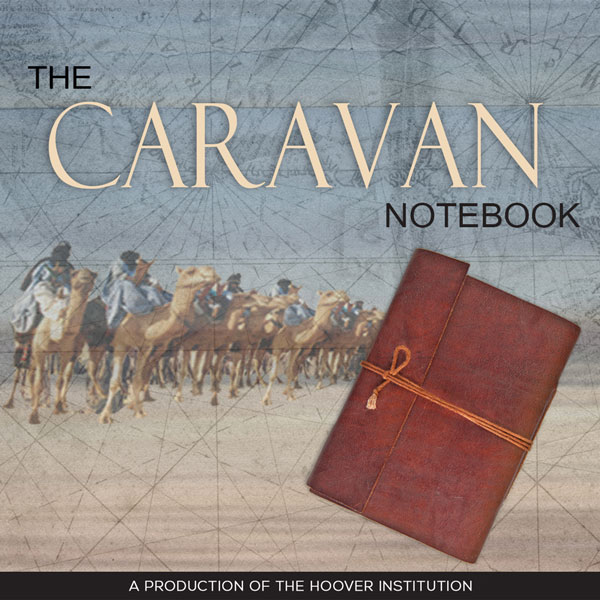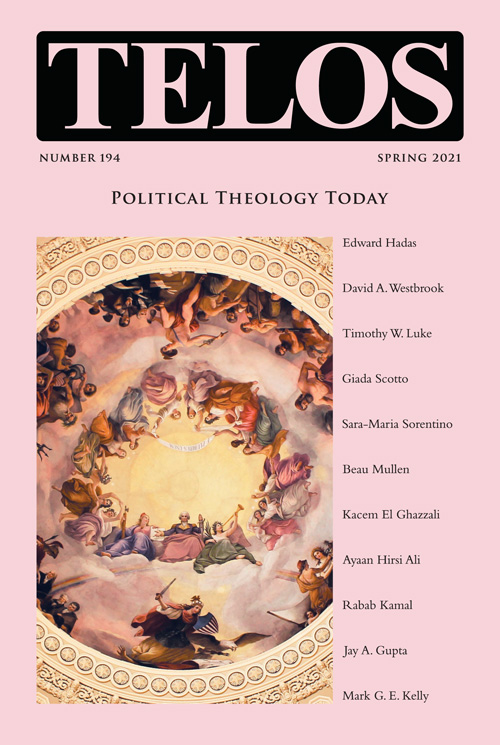 On The Caravan Podcast at the Hoover Institution, Russell Berman talks with political scientist Matthias Küntzel about the potential return of the United States to the Iran Deal, Germany’s long-standing special relationship with Iran, anti-Americanism in Europe, and the anti-Semitism of the Iranian regime. Listen to the podcast here. Küntzel is the author of Germany and Iran: From the Aryan Axis to the Nuclear Threshold (Telos Press, 2014), which examines why the history of the special relationship between Germany and Iran is critical to understanding the ongoing controversy over Iran’s nuclear program. Both Germany and Iran and Küntzel’s earlier book Jihad and Jew-Hatred: Islamism, Nazism, and the Roots of 9/11 are available in our online store for 25% off the list price. Küntzel’s articles for Telos are also available at our online archive.
On The Caravan Podcast at the Hoover Institution, Russell Berman talks with political scientist Matthias Küntzel about the potential return of the United States to the Iran Deal, Germany’s long-standing special relationship with Iran, anti-Americanism in Europe, and the anti-Semitism of the Iranian regime. Listen to the podcast here. Küntzel is the author of Germany and Iran: From the Aryan Axis to the Nuclear Threshold (Telos Press, 2014), which examines why the history of the special relationship between Germany and Iran is critical to understanding the ongoing controversy over Iran’s nuclear program. Both Germany and Iran and Küntzel’s earlier book Jihad and Jew-Hatred: Islamism, Nazism, and the Roots of 9/11 are available in our online store for 25% off the list price. Küntzel’s articles for Telos are also available at our online archive.
|
To read more in depth from Telos, subscribe to the journal here. On The Agenda with Steve Paikin, the discussion about governmental responses to the COVID-19 pandemic turned to Thomas Brussig’s recent editorial “Risk More Dictatorship,” originally published in the Süddeutsche Zeitung and translated into English in TelosScope. Listen to the discussion here, and read Brussig’s full essay here, along with Russell Berman’s commentary on it here. Telos 194 (Spring 2021): Political Theology Today is now available for purchase in our store. Individual subscriptions to Telos are also available in both print and online formats.
To read more in depth from Telos, subscribe to the journal here. In today’s episode of the Telos Press Podcast, Camelia Raghinaru talks with F. Cartwright Weiland about his article “Reflections of a Rapporteur,” one of a group of essays from Telos 192 (Fall 2020) on the U.S. State Department’s Commission on Unalienable Rights. An excerpt of the article appears here. If your university has an online subscription to Telos, you can read the full article at the Telos Online website. For non-subscribers, learn how your university can begin a subscription to Telos at our library recommendation page. Purchase a print copy of Telos 192 in our online store. To read more in depth from Telos, subscribe to the journal here.
In today’s episode of the Telos Press Podcast, Camelia Raghinaru talks with Ruth Starkman about her article “Making Human Rights Readable: The Report of the Commission on Unalienable Rights,” one of a group of essays from Telos 192 (Fall 2020) on the U.S. State Department’s Commission on Unalienable Rights. An excerpt of the article appears here. If your university has an online subscription to Telos, you can read the full article at the Telos Online website. For non-subscribers, learn how your university can begin a subscription to Telos at our library recommendation page. Purchase a print copy of Telos 192 in our online store. |
||||
|
Telos Press Publishing · PO Box 811 · Candor, NY 13743 · Phone: 212-228-6479 Privacy Policy · Data Protection Copyright © 2025 Telos Press Publishing · All Rights Reserved |
||||

 A distinctive feature of public debate in Germany involves prominent literary authors, especially novelists, expounding on current political matters in major newspapers. Thomas Brussig’s essay “Risk More Dictatorship,”
A distinctive feature of public debate in Germany involves prominent literary authors, especially novelists, expounding on current political matters in major newspapers. Thomas Brussig’s essay “Risk More Dictatorship,” 

